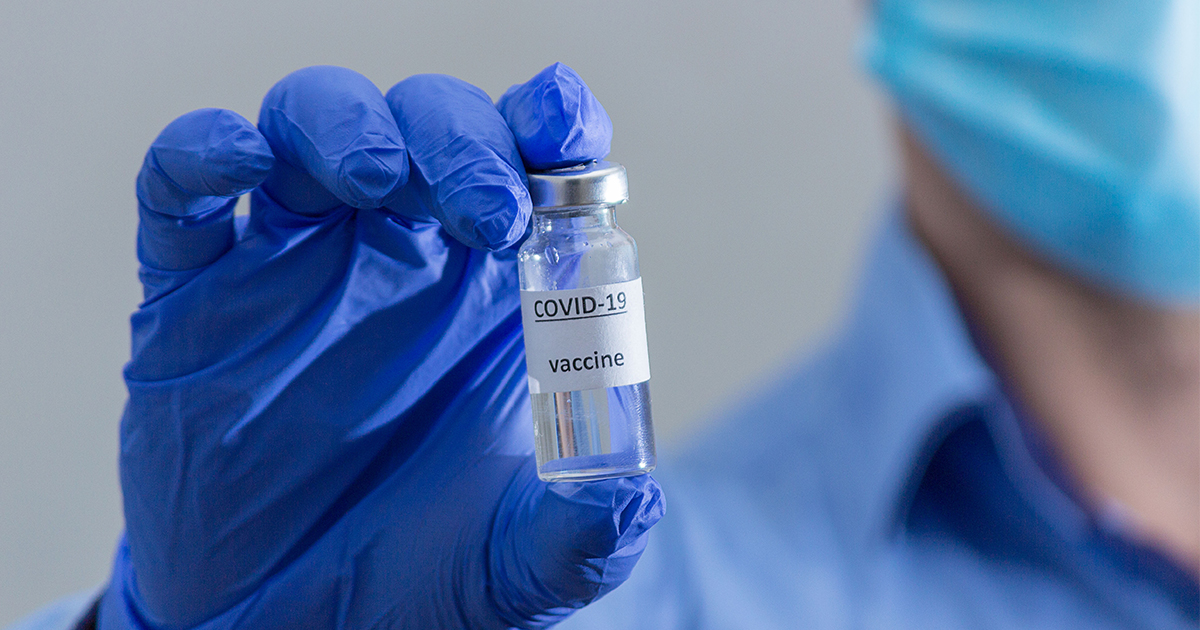
A simple explanation of vaccine efficacy
This article was updated January 17, 2022, to reflect new information from the CDC.
Questions about the COVID-19 vaccine?
Raise your hand if you are confused when you hear about vaccine efficacy, effectiveness and efficiency regarding the COVID-19 vaccines.
You are not alone.
But you should not be confused about this: All three vaccines approved so far in the United States, in addition to the boosters, were nearly 100% effective in clinical trials at preventing severe disease resulting in hospitalization or death.
Still, a blizzard of terms and numbers overwhelms us sometimes. So here’s some clarity for you.
Fine-line definitions
Open a dictionary, and you’ll find the definitions of efficacy, effectiveness and efficiency are very similar. In fact, they are listed as synonyms for each other, meaning that you should be able to use the words interchangeably.
But in medical discussions, there are some subtle differences.
When talking about the COVID-19 vaccines:
- Efficacy measures a vaccine’s capacity to succeed in ideal conditions, such as a controlled clinical trial.
- Effectiveness describes how well a vaccine performs in the real, uncontrolled world.
- Efficiency is a production and distribution term, measuring outcome in relation to the amount of resources used.
Now, consider all three terms in one paragraph:
Clinical trials of the vaccines produced high efficacy rates. Therefore, experts are confident that the vaccines will prove effective in fighting the virus among the general population. But for all of the time and money invested, the efficiency of the early rollout in some states was less than expected.
Focus on vaccine efficacy
With efficacy, you need to realize that clinical trials are based on a small number of people relative to the general population.
“The key point with vaccine efficacy is that it does not relate to the overall population,” said Doug Kasper, MD, infectious disease specialist for OSF HealthCare. “Even in the best clinical trials, you are approaching 40,000 people enrolled. We know that when you get into millions of people, the results will vary.”
A clinical trial gives some participants the vaccine and others a placebo. Researchers study the reactions of both groups. But they also must account for a fundamental truth: Not all unvaccinated people exposed to the virus will get sick.
Efficacy compares the reduction in severe COVID-19 symptoms experienced by those who received the vaccine to those who did not.
In that comparison, the Pfizer and Moderna vaccines experienced a 95% efficacy rate in preventing serious illness and hospitalization resulting from a COVID-19 infection. In other words, of the people who received the vaccine in the trial, their risk of getting COVID-19 was 95% lower than those who did not.
“It does not mean if we vaccinate our population that 5% will become sick with COVID-19,” Dr. Kasper said. “Actually, it’s a much smaller number who will become sick, because we are doing additional measures on top of the vaccine. We expect social distancing, masking and handwashing to be part of the success of the vaccines.”
Not all trials are the same
Now, add in people who have recovered from COVID-19 and have built a degree of natural immunity, and these vaccines are likely to be very efficient in stopping disease spread among the general population.
A caution flag, though: Don’t use efficacy numbers to determine which vaccine will be more effective in the general population.
For example, the Johnson & Johnson vaccine trials reported a 66.9% efficacy rate. But those trials were conducted under different conditions than the Pfizer and Moderna vaccines.
“For the Johnson & Johnson vaccine, the clinical trial included sites in Africa and Latin America that had high circulating rates of variant virus strains. This was not the case for either of the other vaccines,” Dr. Kasper said.
“Efficacy relates to the population on which it was trialed and cannot be directly compared to an alternate trial done in a different location at a different time.”
Booster shots
The Food & Drug Administration FDA and Centers for Disease Control and Prevention (CDC) have approved Pfizer and Moderna booster shots to be given five months after the second dose. The agencies have also have approved boosters for individuals who received the single-dose Johnson & Johnson vaccine. That booster is given two months after receiving the single vaccine dose.
Individuals who are immunocompromised should get a third shot of Pfizer or Moderna 28 days after their second dose, followed by a booster five months later.
Dr. Kasper advises that everyone get vaccinated, and if you are eligible for a booster, get one.
“We don’t want anyone walking away and saying they won’t get vaccinated,” Dr. Kasper said. “The vaccinations work fine, but they are not permanent. Waning immunity was expected and predicted. We just didn’t know how long it would be. We now know the vaccine is waning after several months. If you’re immunocompromised, it’s a shorter time.
“The booster increases protection by increasing antibodies. We are seeing robust increases in antibodies with the booster.”